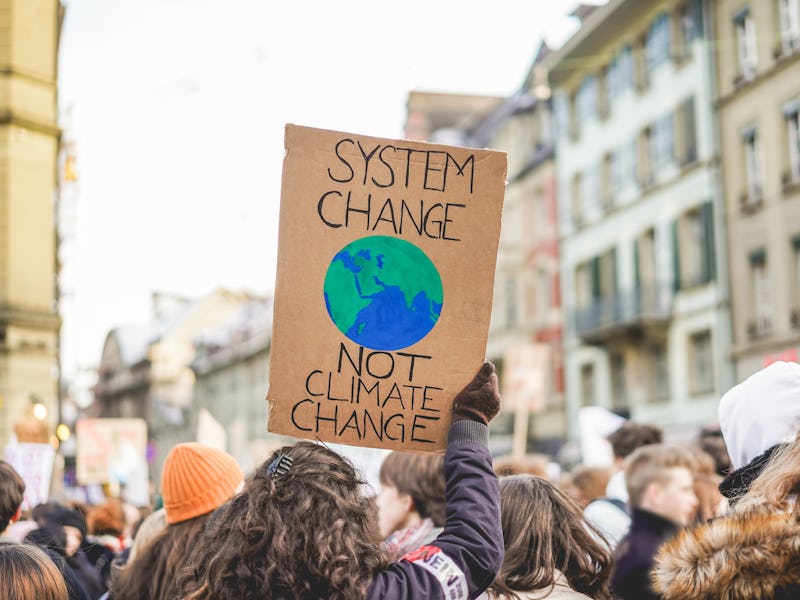Study reveals one climate change strategy that could save the world $616 trillion
What would you do with the money?

Climate change isn't all about cost. It can be about gain, too.
A new study reveals following one climate change-mitigation strategy could save the world as much as $616 trillion.
In the study, researchers simulate a number of possible scenarios to determine the ideal way the world can combat the worst effects of climate change — and what might happen if we don't do anything to curb its insidious effects.
It comes down to countries cooperating at a global scale. If that happens, every country in the world stands to potentially benefit economically in the long run.
To avoid the worst effects of climate change, countries have to establish their own national goals to reduce the amount of climate-warming emissions they produce, the study authors say. Over time, these regulations would not only protect against climate change, but also save money.
Ultimately, the world could gain between $127 and $616 trillion over the next century under the best possible outcome, the study shows.
But the greenhouse gas-cutting efforts from each country would need to go beyond current goals set by each country, the authors say. And that's going to require both a significant financial investment and a commitment to work together, the study suggests.
The G20 countries — an international consortium of world leaders, including 19 countries and the European Union — would need to contribute as much as $103 trillion. For the United States alone, the figure could be as high as $33 trillion, or as low as $5.4 trillion, the study suggests.
Environment friendliness goes a long way, keeping the sky baby-blue as it should be.
Climate-saving strategies can also create jobs, research shows. A recent study in the journal One Earth found that in the United States, the proposed Green New Deal would add 30 million jobs. Those would come from ramping up the amount of renewable energy we're using, like wind, solar, and water power — and switching away from using fossil fuels.
The new research was published Tuesday in the journal Nature Communications.
Climate change costs — While the study outlines an optimistic future scenario, it also reveals how much the world could lose if countries don't take the actions the authors recommend.
It countries don't step up their commitments to reducing greenhouse gases, then the world could lose an absurd amount of money over the same period — as much as $800 trillion.
The precise amount that climate change may cost the world is yet to be seen, and even the new estimates present a wide range: The total could be between $150 trillion and $792 trillion by 2100.
The results gibe with past studies examining the financial costs of climate change. In a study published October 2019, researchers reveal that the most extreme natural disasters cost more money now than ever.
Financial damage from the most severe incidents increased 20-fold between 1970 and 2010, the research found. The totals grew from approximately $500 million to $10 billion, as Inverse previously reported.
In terms of the economic areas affected, the negative impacts aren't discriminatory. Climate change may cause problems with human health, infrastructure, electricity, and agriculture, according to Environmental Protection Agency researchers.
What’s in store for the climate — Current projections suggest that global temperatures could increase by 1.5 degrees Celsius as soon as 2030. A warmer world means sea levels will rise as the polar ice caps and glaciers melt. At the same time, there will likely be an uptick in natural disasters. If that comes to pass, then more animals mat be driven to extinction, and more humans will be displaced.
That’s where the new research may help: It outlines what the potential economic losses are if countries don’t take significant action to curb climate change — and what they can gain if they do.
The researchers hope that by talking about the financial consequences of climate change, more countries will be willing to take action. Think about it as paying in to "self-preservation" the authors write.
“A strategy that informs on countries’ potential losses due to lack of climate action may facilitate global climate governance,” the authors write.
Abstract: A strategy that informs on countries’ potential losses due to lack of climate action may facilitate global climate governance. Here, we quantify a distribution of mitigation effort whereby each country is economically better off than under current climate pledges. This effort-sharing optimizing approach applied to a 1.5 °C and 2 °C global warming threshold suggests self-preservation emissions trajectories to inform NDCs enhancement and longterm strategies. Results show that following the current emissions reduction efforts, the whole world would experience a washout of benefit, amounting to almost 126.68–616.12 trillion dollars until 2100 compared to 1.5 °C or well below 2 °C commensurate action. If countries are even unable to implement their current NDCs, the whole world would lose more benefit, almost 149.78–791.98 trillion dollars until 2100. On the contrary, all countries will be able to have a significant positive cumulative net income before 2100 if they follow the self-preservation strategy.